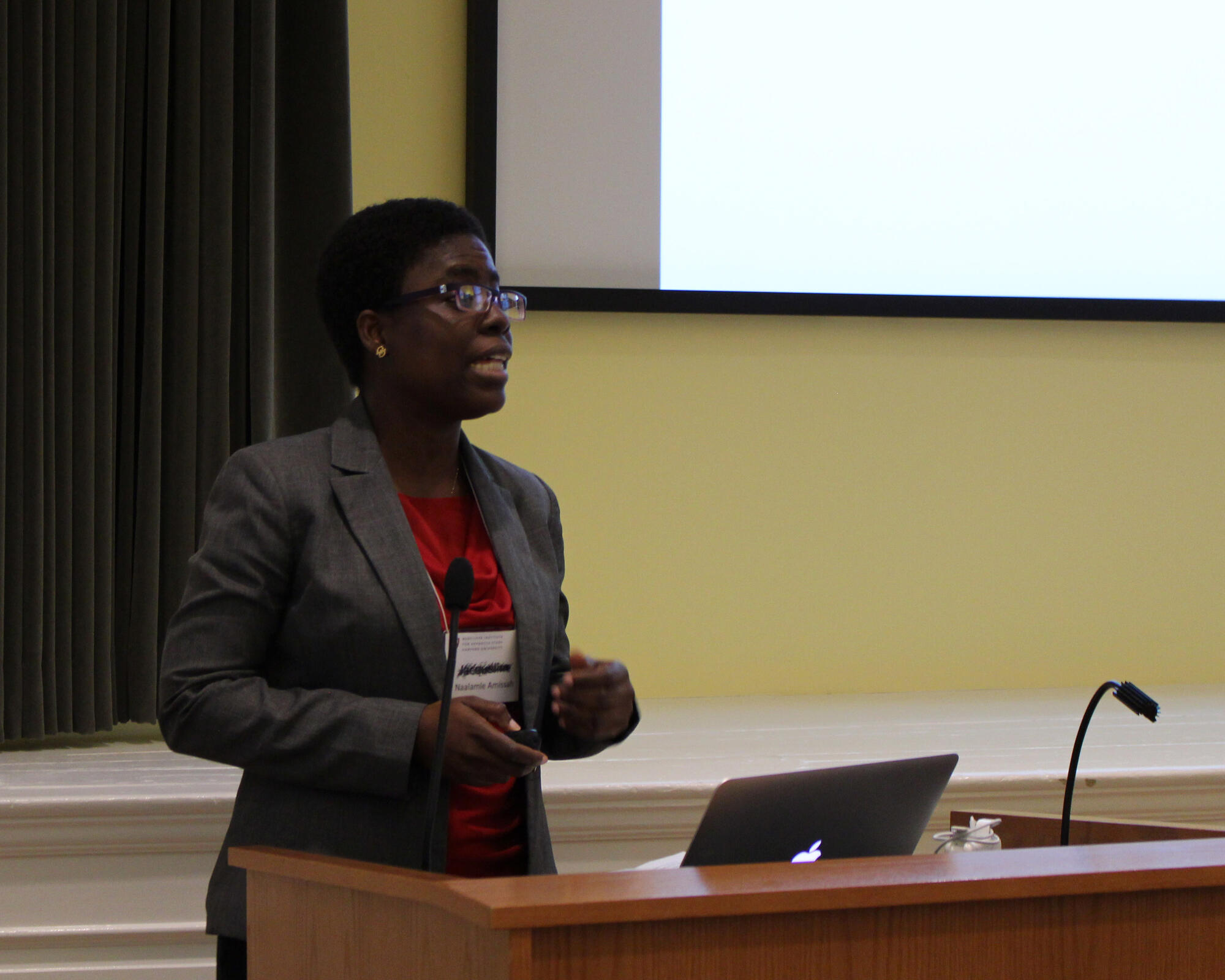On April 21 – 22, 2021, the Harvard Center for African Studies will reconvene our Climate Change, Agriculture, and Health in Africa initiative around the theme of water for a two-day virtual conference on Africa’s Water Opportunity: Science, Sustainability, and Solutions.
This research initiative was launched in November 2017 with a conference for leaders, scientists, and students to highlight the intersection of nutrition and health, agriculture, and the environment in Africa toward solving complex health and development challenges. At this meeting, CAS faculty Wafaie Fawzi, Calestous Juma and Emmanuel Akyeampong initiated cross-disciplinary and cross-school collaboration with experts from the Harvard T.H. Chan School of Health, the Harvard Kennedy School and other partner institutions. In a commentary emanating from the conference, the participants outlined key avenues for universities to promote science at the intersection of public health and the environment in sub-Saharan Africa.
This conference was followed in 2018 by an Accelerator Workshop, convened by CAS in collaboration with the Harvard Global Health Institute and Radcliffe Institute for Advanced Studies. The workshop that brought together scholars from across Africa and Harvard University to evaluate current data and policy interventions.
In the years following, CAS has hosted four short-term visiting scholars:
- Naalamle Amissah from the University of Ghana with expertise in crop science, mentored by Professor Emmanuel Akyeampong, worked closely with the Center for Geographic Analysis and participated in a two-week intensive GIS institute that included participants from a wide variety of disciplines and backgrounds. She presented on “Impact of Climate Change on Smallholder Agriculture and the Role of Underutilized Crop Species in Achieving Food Security” at the workshop.
- Rasheed Owolabi from the University of Lagos – Nigeria with expertise in biofuels, spent his time researching “Mechanistic Modeling, Process Optimization and Bio-catalyst Synthesis for Green Fuel Production with Professor Emmanuel Akyeampong as a faculty mentor. He presented on “Towards a Green Measure for a Changing Climate: The Search for a Low-cost Biodiesel Commercial Scale Process Technology” at the workshop.
- Victor Ongoma who was then at the South Eastern Kenya University, and now at the Mohammed VI Polytechnic University - Morocco, with expertise in meteorology, worked closely with Professor Peter Huybers and his research team at the Harvard Center for Environment. He also had the opportunity to attend the American Geophysical Union (AGU) Fall Meeting 2018 held in Washington D.C. He continues his collaboration with Peter Huybers’ work climate change and crops in Africa.
- Inam Yekwayo who was then from the University of Mpumalanga, and now at Walter Sisulu University – South Africa, with expertise in conservation ecology, facilitated collaborative research with the Department of Organismic and Evolutionary Biology and the Museum of Comparative Zoology with Professor Naomi Pierce.

Naalamle Presenting at the Accelerator Workshop - May 2018
Most recently, a collaborator and presenter of the workshop, Professor Rainer Sauerborn (Heidelberg University, Germany) has continued the research he presented at the workshop. Research at the household level (plot resolution estimates of crop yield through remote sensing) and at the macrolevel, with PIK colleagues projecting the impact of 1.5°C warming on the impact on yields, and from them via undernutrition, to nutrition-related child deaths. You can find open access articles by him and his colleagues linked below.
For this year’s two-day conference, we will convene around the theme of water. Water has been a central and defining theme of Africa’s development agenda for decades. Climate change across the African continent will result in altered rainfall patterns, with some areas becoming drier and others seeing increased levels of precipitation. Water remains central to our livelihoods: for hydration and cooking, for healthcare, and for industry and manufacturing. Indeed, it was in recognition of water’s essentiality to human life that in “July 2010, the United Nations General Assembly explicitly recognized the human right to water and sanitation and acknowledged that clean drinking water and sanitation are essential to the realization of all human rights.” Panels will feature a diverse mix of faculty and researchers, government officials, private sector representatives, NGOs and non-profits, and philanthropists working on 21st century solutions to water.
Save the date for April 21 & April 22, 2021 for a conference on Africa’s Water Opportunity: Science, Sustainability, and Solutions. More information soon.
Estimating Yields of Household Fields in Rural Subsistence Farming Systems to Study Food Security in Burkina Faso (Karst et al., Remote Sensing, May 27, 2020)
Climate Change Policies in 16 West African Countries: A Systematic Review of Adaptation with a Focus on Agriculture, Food Security, and Nutrition (Sorgho et al., International Journal of Environmental Research and Public Health, November 30, 2020)
